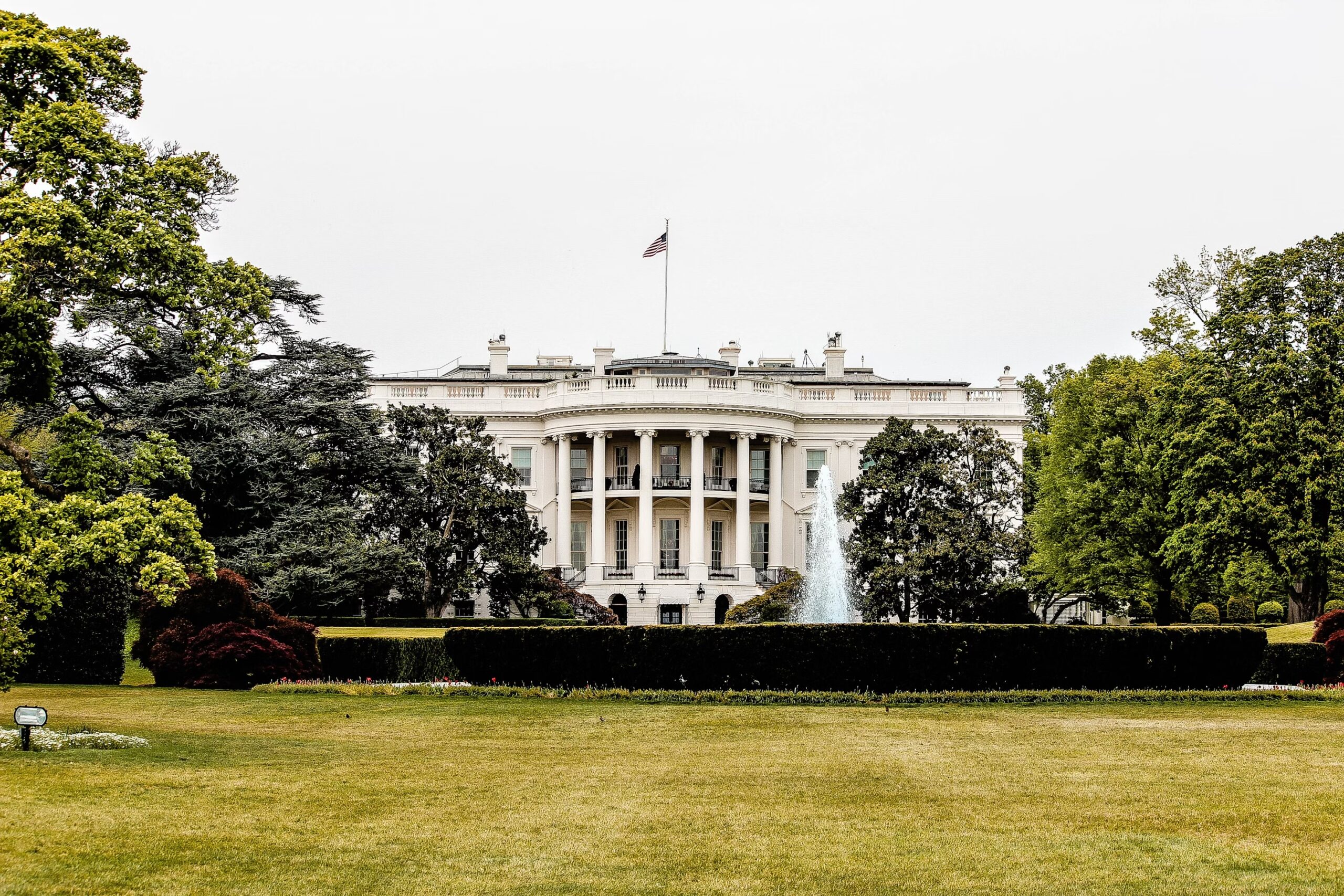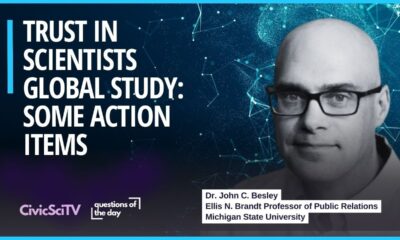Civic Science Observer
At the 2024 American Geophysical Union annual conference, science journalists grapple with what’s next for science under the new administration

As President-elect Donald Trump begins his second term in January, there is still much uncertainty over how scientific research will be affected by a myriad of issues, including Trump’s views on climate change, geopolitical tensions with China and Trump’s desire to slash government spending, according to panelists speaking at a plenary session at the American Geophysical Union’s annual conference earlier this month.
The plenary session, “What’s Next for Science, Navigating New Realities in a Changing World,” featured a panel of three science journalists who discussed how science policy might change under Trump’s second term.
Trump’s views, as well as the actions of his Cabinet members, are significant for U.S.-based scientists and researchers because they might define what scientific programs and initiatives get funding and what don’t. They could also potentially set parameters on which countries the U.S. scientific community may engage with and share ideas.
One uncertainty is how Trump-appointed Cabinet members will grapple with the Department of Government Efficiency’s (DOGE) intent to slash perceived wasteful government spending, according to plenary session moderator Andrew Freedman, senior climate reporter at Axxios, an American news site.
“The interaction between that entity and traditional bureaucracies—that entity and NASA, that entity and NOAA and other agencies—is going to be very interesting because you also have Cabinet members who, once there, will have a parochial interest in defending their agency. They may have said they want to cut funding, but when push comes to shove and they’re actually in that position, they don’t probably,” Freedman said.
With DOGE’s efforts to slash government spending is one uncertainty, another among science journalists is whether DOGE will encourage the privatization of data.
“We haven’t really talked much about data access. We’re talking about the privatization of a lot of these resources that we use, for example, the National Weather Service. [Their] satellite data is invaluable,” said Kasha Patel, deputy weather editor with the Washington Post.
Another uncertainty is if and how Trump’s close friendship with billionaire entrepreneur and tech mogul Elon Musk will factor into what government initiatives get support—or scrutiny. Musk, who is overseeing DOGE with entrepreneur Vivek Ramaswamy, is known for his keen interest in electric cars and missions to Mars. However, Musk has also been known to support government employees who are conducting niche, yet valuable, scientific work, according to panelists.
“A lot of scientific breakthroughs have come from what to the layman would look like a kind of pointless or esoteric activity. So I think we’re going to see that collision with the scientific community around what’s important and where scientific discoveries come through,” said Oliver Milman, journalist and environmental correspondent for The Guardian.
Trump could support Musk’s desire to increase space-related research, but lots of questions still remain, according to Alexandra Witze, a freelance journalist whose work has appeared in Nature.
“A lot of the space policy folks that ‘’I’ve been talking to in the last couple of weeks are prognosticating about what might happen,” Witze said.
However, Trump’s priorities, such as beating China at the space race, could influence the outcome, Witze said.
“Congress has its entrenched interests, and Congress will ultimately decide what happens with NASA’s budget. But NASA is likely to send humans to the surface of the moon as they’ve been planning, partially because China has expressed interest in that as well,” Witze continued. “That kind of anti-China sentiment that is going to be quite emergent with the new administration will, I think, play into continuing to push towards a human lunar landing. But after that, Musk may very well pressure the administration to try to get people flying on a starship straight to Mars. … Those are the kinds of things that we’re watching in the space arena.”
Indeed, Trump’s sometimes antagonistic stance on China could influence who U.S.-based scientists and researchers may be able to interact with, according to Witze.
When broadening the issue to international collaborations between scientists, “we’re not sure what types of immigration restrictions are going to come in. We’re not sure if there are going to be bans on people coming from particular countries. We’re not sure what that means for people’s laboratories that are very full of international students, of international researchers, international collaborations trying to do field work. … There were so many unforeseen immigration and travel restrictions that came through in the first administration, I just feel like maybe we’re going to have that to the nth degree in the second Trump administration,” Witze said.
Despite all these uncertainties, one area where there might be more clarity on how Trump will act is climate change. Trump has signaled that he supports having the U.S. exit the Paris Climate Agreement and removing the U.S. from implementing the United Nations’ climate change policy framework, panelists said.
Even when relationships broke down between the U.S. and China, scientific dialogue between the two countries on climate change continued, according to Milman. This dialogue kicked off after former President Barack Obama and China’s President Xi Jinping agreed to address greenhouse gas emission reductions.
However, given Trump’s stance to push back on climate change and hold an antagonistic stance against China, it’s uncertain in what form that collaboration will continue.
China’s decision-makers “essentially think that the topic is closed for the next four years. They know that Trump is not going to raise climate or the environment or any kind of related issues with Xi in the next four years,” Milman said. “It’s completely on the back burner for them, and that’s going to filter down through to scientific collaborations and so on.”
Indeed, what could occur in the U.S. is heightened debate on whether climate change exists, Milman continued. However, whether federal support is withdrawn completely remains to be seen. Trump could decide to throw out existing work on old-growth forests, ecosystems and carbon storage, or he might not, Milman said. Meanwhile, state governments, like California, could continue to pursue climate change-related regulations apart from federal activity.
“I would say climate science is such a sprawling term that I can’t say like climate science looks like it will be a winner or a loser,” Freedman said. “There are elements of climate science in so many different disciplines that receive funding through different pipelines and different constituencies.”
Joanna Marsh is a freelance writer and journalist based in Washington, D.C. For The Civic Science Observer, she reports on new developments across the citizen science landscape, covering both new research and on-the-ground practice. Her work highlights how local communities are engaging with scientists to contribute to ongoing scientific research and lessons being learned by the involved stakeholders.

-
Audio Studio1 month ago
“Reading it opened up a whole new world.” Kim Steele on building her company ‘Documentaries Don’t Work’
-
 Civic Science Observer1 week ago
Civic Science Observer1 week ago‘Science policy’ Google searches spiked in 2025. What does that mean?
-
Civic Science Observer1 month ago
Our developing civic science photojournalism experiment: Photos from 2025
-
Civic Science Observer1 month ago
Together again: Day 1 of the 2025 ASTC conference in black and white
Contact
Menu
Designed with WordPress






















